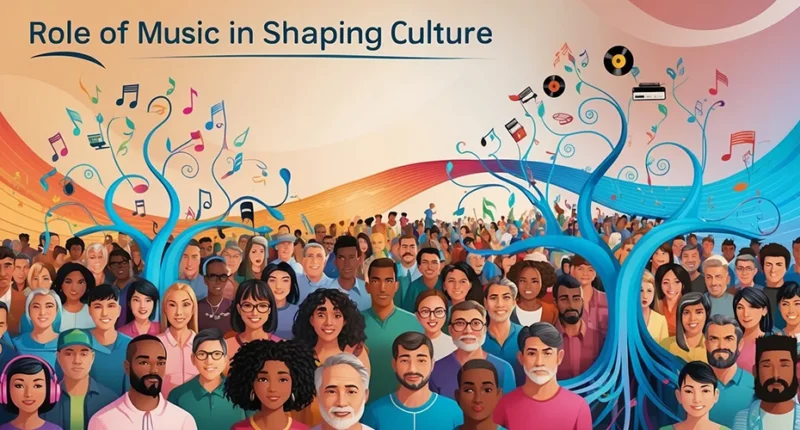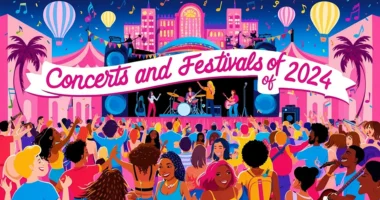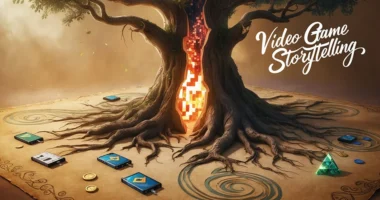Table of Contents
Music has always been an important part of human life, influencing everything from how we express emotions to how we connect with others. It is not just a form of entertainment but a powerful tool that shapes and reflects cultures around the world. From the rhythm of traditional folk songs to the beats of modern pop music, music plays a key role in defining who we are as individuals and as communities. Let’s explore how music has shaped cultures and continues to do so today.
Music as a Form of Expression
One of the most important ways music shapes culture is by giving people a way to express themselves. For centuries, music has been used to tell stories, share experiences, and communicate ideas that might be hard to put into words. Folk music, for example, often reflects the struggles and joys of everyday life, offering a snapshot of the values and emotions of a particular time or place.
In many cultures, music has been used to convey important messages—whether it’s songs of protest calling for change or anthems of unity celebrating shared values. In the United States, music played a significant role in the Civil Rights Movement, with songs like We Shall Overcome becoming symbols of hope and resistance. Similarly, reggae music in Jamaica was used as a voice for social and political change.
Music as a Cultural Identity
Music is often tied to cultural identity, helping people feel a sense of belonging and pride in their heritage. Different types of music are often connected to specific cultures, regions, and traditions. For instance, the flamenco music of Spain, the classical music of Austria, or the samba of Brazil all serve as important markers of national and regional identity.
Traditional music can also serve as a way to preserve cultural history. In many societies, music is passed down through generations, keeping old customs, stories, and rituals alive. Whether it’s indigenous chants, the sound of bagpipes in Scotland, or the beats of African drumming, music helps maintain a link to the past and reminds people of their roots.
Music and Social Change
Throughout history, music has been a powerful tool for social change. From protest songs to politically charged lyrics, music has been used to challenge the status quo and inspire action. In the 1960s, for example, the folk music of Bob Dylan and the rock music of The Beatles helped bring awareness to issues such as civil rights and the Vietnam War.
In more recent years, hip-hop music has been a voice for marginalized communities, addressing issues like poverty, racism, and police brutality. Artists like Tupac Shakur, Kendrick Lamar, and others have used their music to speak out against injustice and push for change. Music, in this sense, is not just entertainment—it’s a powerful tool for activism and social transformation.
Music and Globalization
In today’s interconnected world, music has become a global language. With the rise of streaming platforms and social media, music from different cultures is now more accessible than ever before. As a result, genres that once seemed confined to specific regions are now enjoyed worldwide. K-pop, for example, has become a global phenomenon, with fans from every corner of the world singing along to songs in Korean.
Globalization has made it easier for music to cross borders and influence cultures in ways that were not possible before. The fusion of different musical styles—like the blending of Western pop with African rhythms or the combination of Latin beats with American hip-hop—has created new genres and brought people from different cultures together. Music, in this sense, has become a bridge, connecting people from diverse backgrounds and helping to foster a sense of global community.
Music as a Reflection of Social Values
Music often mirrors the values, beliefs, and issues of the society in which it is created. In times of war, for example, music can express the pain and sacrifice of soldiers and their families. During times of peace, music can celebrate freedom and unity. Music can also address contemporary issues like mental health, inequality, and environmental concerns, raising awareness and inspiring change.
Through lyrics and melody, music reflects the hopes, fears, and dreams of the people who create it. As society changes, so too does the music. In the 20th century, for example, the rise of rock ‘n’ roll was a reflection of the cultural shift toward youth rebellion and independence. Similarly, the rise of electronic music in the 2000s reflects society’s growing reliance on technology and the digital age.
Music’s Emotional Impact
Music has the unique ability to connect with people on an emotional level. Whether it’s the joy of dancing to a catchy pop song, the sadness of listening to a soulful ballad, or the excitement of an upbeat anthem, music can bring out strong emotions. These emotions can be shared across cultures, making music a universal language that helps people feel connected to one another, regardless of where they come from.
In times of celebration, music plays a vital role. Think of the music played at weddings, national holidays, or festivals. In many cultures, specific songs or types of music are played to mark important life events, further showing how music is woven into the fabric of cultural life.
Conclusion
Music plays a vital role in shaping and reflecting culture. It is a powerful form of expression, a source of cultural identity, and a tool for social change. Whether it’s traditional folk songs or modern pop hits, music connects us to our past, our communities, and each other. As music continues to evolve and spread across the globe, it will remain an essential part of our lives, shaping our values, emotions, and cultural landscape for generations to come.










